Fake Milk, Fake Medicine, and the Endless Blame Game
Bảo Lâm wrote this Vietnamese article, published in Luật Khoa Magazine on April 24, 2025. In early April, a criminal

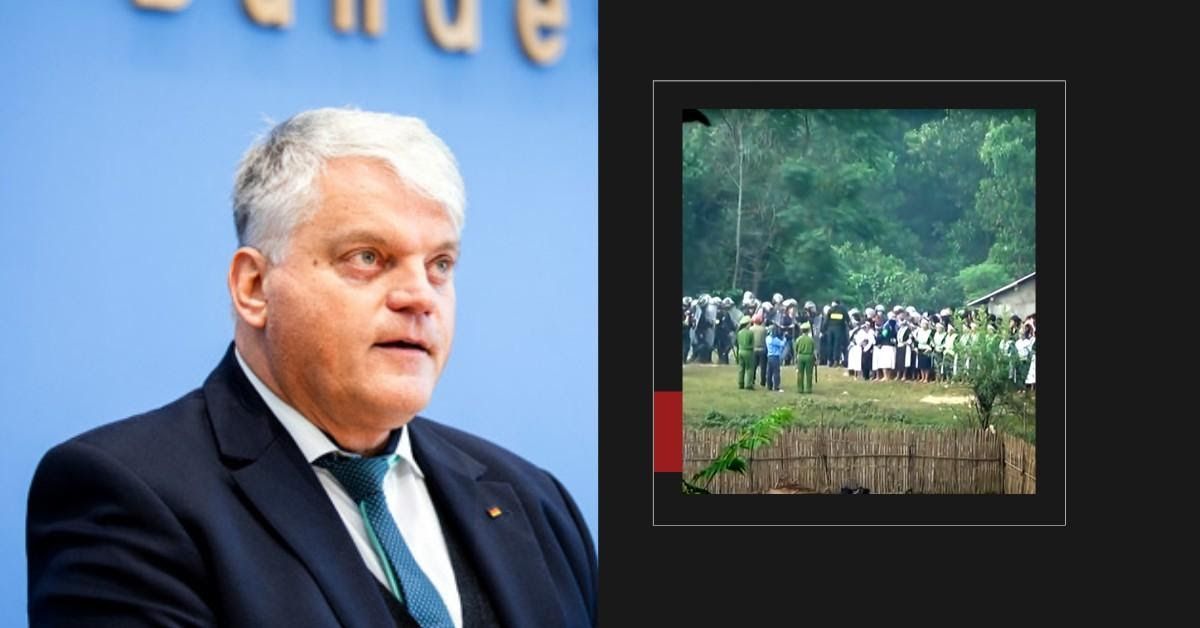
Religion Bulletin, February 2021:
In past years, Vietnam has encountered a number of issues with Germany. There may be one more to add to the pile as the German Parliament prepares to release a report on international religious freedom April 14, 2021. The report details the dire situation regarding religious freedom in Vietnam.
Germany takes this year’s congressional hearing particularly seriously.
In a press release on the report on international religious freedom in 2020, Dr. Gerd Müller, German development minister, stated: “In countries where no progress is made on this over long periods, we do not simply continue our government-to-government cooperation but, instead, shift our focus to strengthening civil society and supporting the humanitarian work carried out by the churches [in those countries].”
Dr. Müller used Myanmar as an example to demonstrate that Germany keeps its word. He stated that Germany had cut off ties with the Myanmar government, transferring direct aid to Muslim Rohingya refugees who had fled to Bangladesh to escape the Myanmar Army’s ethnic genocide.
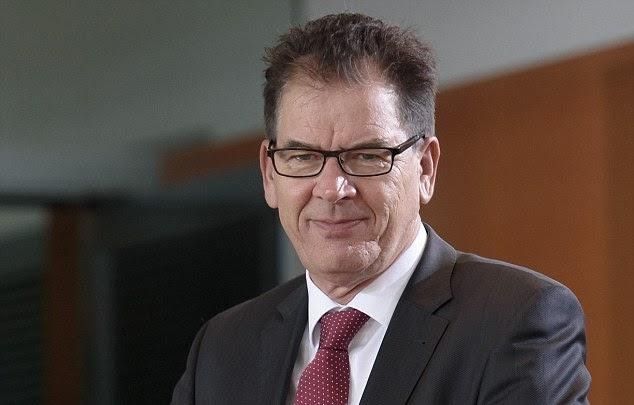
For decades, international organizations have stated that the Vietnamese government has not made any noteworthy improvements on religious freedom.
The report on international religious freedom was ratified by the German cabinet on October 28, 2020. In it, Vietnam was accused of engaging in serious and systematic suppression of religious practitioners, including those of the Duong Van Minh religion in the northeast, Protestants in the Central Highlands, and those of the Cao Dai, Hoa Hao, and Catholic religions, who seek independence in their activities.
The report also stated that the Catholic Church in Vietnam had faced difficulties for years due to ambiguous laws and regulations, established to manage the non-profit and charitable activities of religious communities.
The fact that religious practitioners faced heavy punishment was also highlighted by the report’s confirmation that followers continued to endure multiple forms of violence.
Prisoner of conscience Phan Van Thu, 73, who received the heaviest sentence in the case of the Bia Son Public Justice Council, is currently suffering health setbacks and is in dire need of medical care.
Thu’s wife, Vo Thi Thanh Thuy, stated that ever since he transferred prisons in 2017, his health has steadily declined. Thu had a history of illness before he was arrested in 2012, including: diabetes, heart failure, high blood pressure, and rheumatoid arthritis. Doctors have confirmed Thu is in need of regular medical treatment at a hospital.
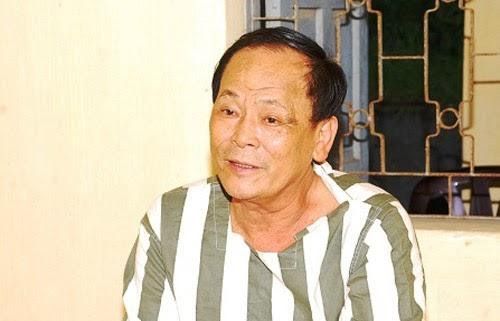
In an official form sent to Gia Trung Prison in Binh Dinh Province requesting medical care for her husband, Phan Van Thu’s wife recalled that he had to go to the emergency room while serving his sentence in 2018.
She requested that the prison give him a complete check-up as soon as possible, along with a specific treatment plan.
The case of the Bia Son Public Justice Council went to trial for the first time in February 2013 and is most likely the religious freedom-related case with the highest number of defendants in the history of Vietnamese law. Twenty-two members of this council received heavy sentences, from 10 years to life in prison. Phan Van Thu, who led the organization, received a life sentence.
According to state media, the court convicted the members of acting to overthrow the people’s government. One member asserted, on the contrary, that their activities were strictly religious in nature.
What would you do if you wanted to conduct religious activities legally, but the commune authorities refused to accept your registration form? According to the Ethnic Thuong for Justice webpage, on February 20, 2021, members of the Protestant Church of Christ in Dak Lak Province were forbidden by police from conducting religious activities.
In a one-minute and thirty-second video posted on social media, two police officers are seen filling out a form citing church members’ “unlawful religious activities”.
According to the 2016 Law on Faith and Religion, individuals who seek to organize religious assemblies must register with commune authorities. Religious groups who gather without registering are seen by police as being in violation of the law.
However, authorities openly discriminate against the Protestant Church of Christ. A member of the church stated that commune authorities refused to issue a permit for their religious gathering.
The webpage Ethnic Thuong for Justice reported that an ethnic Thuong Protestant was suddenly arrested by police as he was taking his child to school on February 26, 2021.
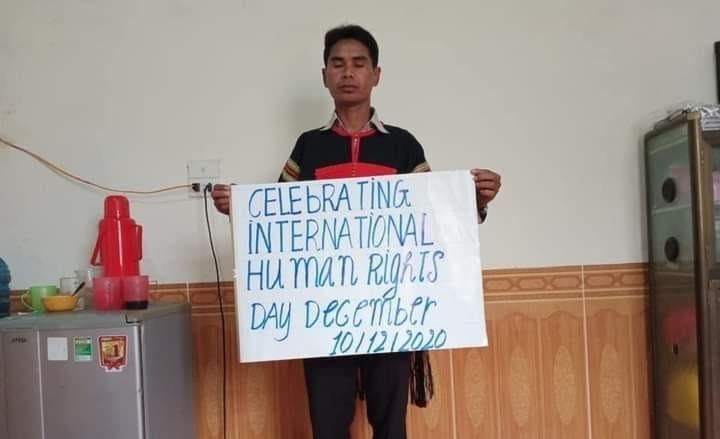
The arrested individual is reportedly Y Thinh Nie, 42, a resident of Drai Si Highland Village, Ea Tar Commune, Cu Mgar District, in Dak Lak Province.
Two days prior to his arrest, police had arrived at his residence to invite him to the station for questioning. He refused citing a lack of paperwork.
The webpage also reported that Nie’s arrest had to do with his taking pictures to mark the International Day Commemorating the Victims of Acts of Violence Based on Religion or Belief (August 22, 2020) and International Human Rights Day (December 10, 2020).
On February 3, 2021, the Government Committee for Religious Affairs added a new deputy head. However, all state channels which reported on the assumption of office avoided discussing the cadre’s background.
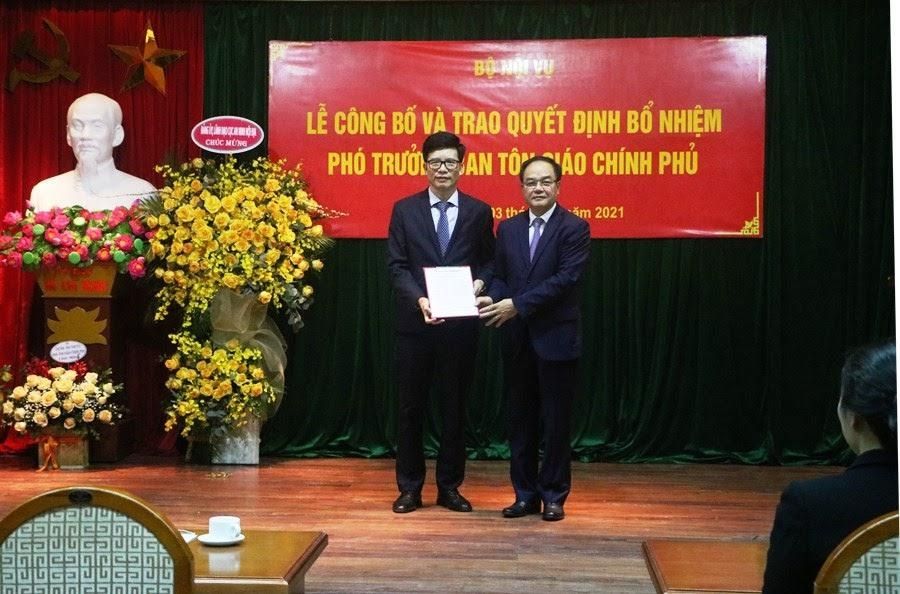
The new deputy head of the Government Committee for Religious Affairs (GCRA) is police colonel Nguyen Tien Trong. Before being appointed to the GCRA, Trong was deputy head of the Ministry of Public Security’s Internal Security Bureau.
The Internal Security Bureau is the bureau responsible for combatting alleged reactionaries, terrorists, and threats to security, including those of a religious nature.
As with other leaders of the GCRA, there were not many details on Trong’s background. GCRA simply reported that Trong is an ethnic Kinh, non-religious, from Bac Giang, and a graduate with a bachelor’s degree in security reconnaissance. GCRA did not disclose Trong’s previous positions and work units.
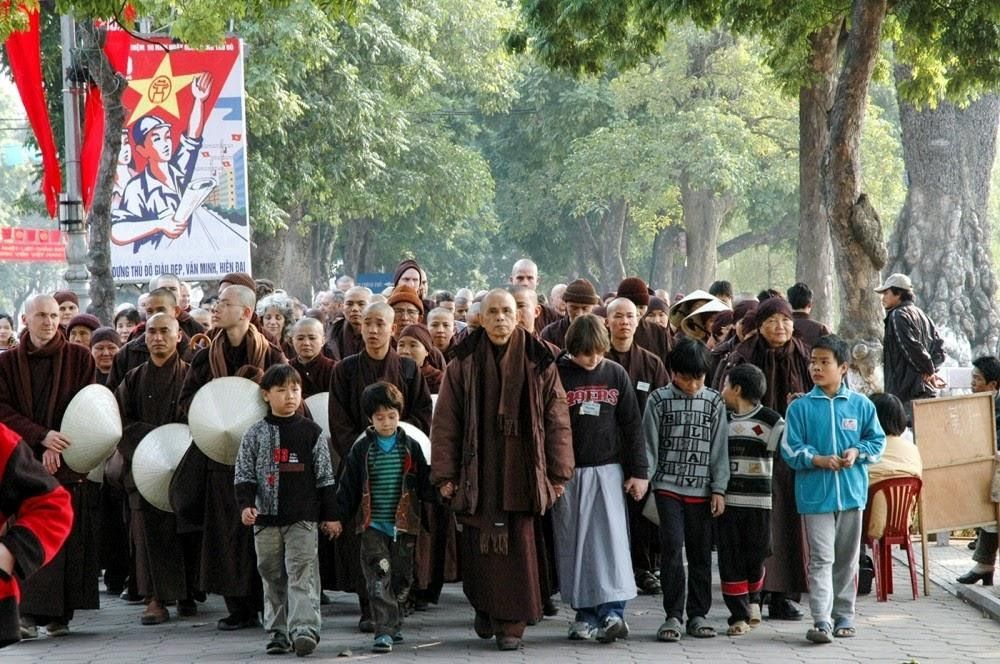
In February 2010, Zen Master Thich Nhat Hanh – one of a number of monks highly respected by the Vietnamese public – issued 12 proposals to the government on the millennial anniversary of Hanoi.
Among these 12 proposals two were related to freedom of religion.
First, he petitioned the government to grant prisoners amnesty, including those prisoners who were charged just because they were “contributing ideas of improvement to the government; calling for pluralism, multiple political parties, and multiple churches; and calling for freedom of religion and freedom of speech.”
Second, he asked that Buddhist dignitaries both in- and outside the country to combine forces to “establish a single, private Buddhist church, one that stands completely outside of politics.”
Zen Master Thich Nhat Hanh was forbidden from returning home to Vietnam after an anti-war advocacy tour he conducted in 1966. It was not until 2005 that he was permitted to return. After returning home, his books began to be published in Vietnam, with the exception of those that touched upon freedom of religion or politics.
On his return home, Hanh has made proposals to the Vietnamese government to enact political and religious reforms that he felt were necessary, but to this day, the authorities continue to use strict policies to control religion. According to human rights organization The 88 Project, the Vietnamese government currently holds approximately 73 individuals as prisoner for their religious activities and for fighting for religious freedom.
In March 2014, an ethnic Hmong named Hoang Van Sang was sentenced by the Yen Son District People’s Court, Tuyen Quang Province, to 18 months in prison, in accordance with Article 2258 of the Penal Code, for abusing democratic freedoms to infringe upon the interests of the State and the legitimate rights and interests of organizations and/or citizens.
Tran Thu Nam, Sang’s defense attorney, uniformly rejected the court’s decision, stating that Sang could not be convicted according to Article 258 based on the activities he conducted with a number of other Hmong.
According to Nam, Sang and a number of other Hmong practitioners of the Duong Van Minh religion had agreed to pool money to build a morgue. Sang took on responsibility for purchasing the construction materials. For merely doing that, he was sentenced to 18 months in prison.
A week after Sang’s trial, another trial involving three ethnic Hmong practitioners of the Duong Van Minh religion began in Ham Yen District, Tuyen Quang Province.
According to RFA, that morning, police blocked intersections connecting the court to villages with Duong Van Minh practitioners. But police were unable to block all unpaved paths to the court; approximately 150 ethnic Hmong took a shortcut in the four-hour preceding to protest the trial.
Similar to Sang, the three defendants were also convicted according to Article 258, with each receiving a different sentence: 24 months, 18 months, and 15 months in prison, respectively.
Six years have passed and ethnic Hmong still resolutely follow the Duong Van Minh religion, despite the government’s heavy-handed oppression of the group.
According to the German Foreign Ministry, in October 2018, practitioners of the Ha Mon religion in 68 residential neighborhoods issued an SOS to the United Nations, the European Union, and the United States.
A report by the US State Department on religion stated that in 2019, Vietnamese police used electric rods and automatic rifles to attack a group of Duong Van Minh practitioners who were organizing festivities for Tet. The incident occurred in Na Heng Hamlet, Nam Quang Commune, Bao Lam District, Cao Bang Province.
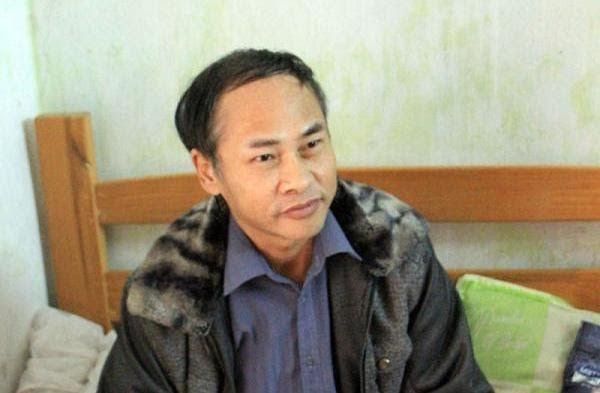
According to the overseas Vietnamese-language press (RFI, Nguoi Viet), the Duong Van Minh religion appeared during the 1980s. Its main objective is to make Hmong faith customs surrounding funerals and marriages more progressive and hygienic. The religion was founded by Mr. Duong Van Minh, who currently resides in Tuyen Quang Province.
Important in the religion is the construction of small housing structures that are used as “funeral homes.” In these structures are a number of items, including holy crosses and wooden toads and swallows that are used during ceremonies.
These structures have been destroyed by the Vietnamese authorities for being built without a permit and for propagating a “false religion.” The government and state media both assert that the Duong Van Minh religion is a false one, arguing that the religion discourages people from work and study, disrupts traditional customs, and leads people to form groups that disobey the government’s religious and social policies.
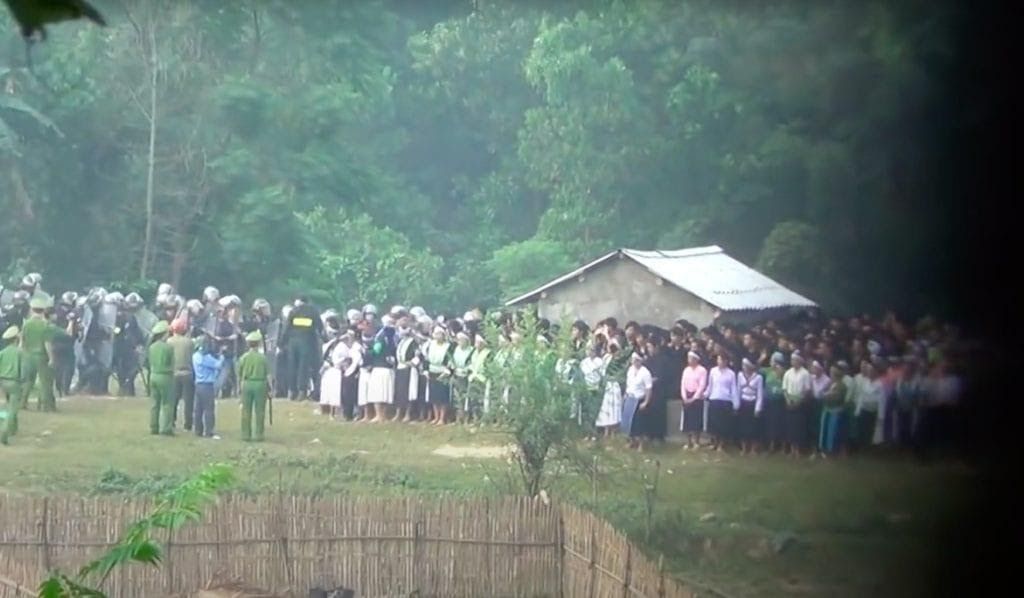
Practitioners of the Duong Van Minh religion, however, have told the overseas media that they work to alter the rituals by which they worship the dead.
A 2020 radio report by the People’s Ministry of Public Security Communications Bureau stated that there were approximately 8,000 ethnic Hmong practitioners of the Duong Van Minh religion, in four provinces (Tuyen Quang, Bac Can, Cao Bang, and Thai Nguyen).
Vietnam's independent news and analyses, right in your inbox.